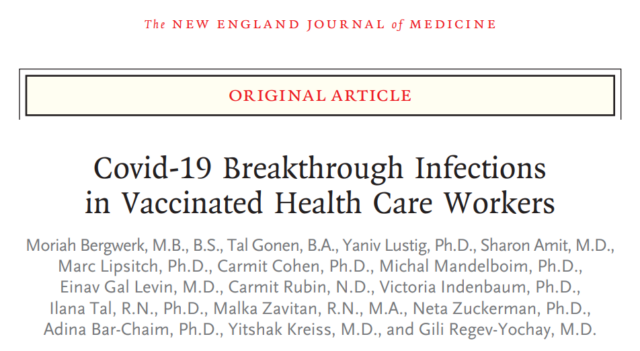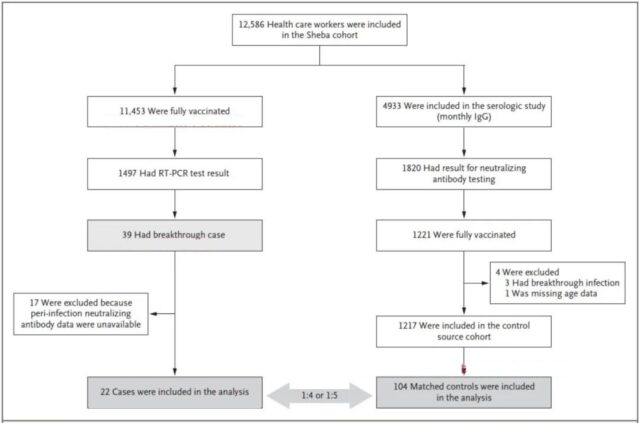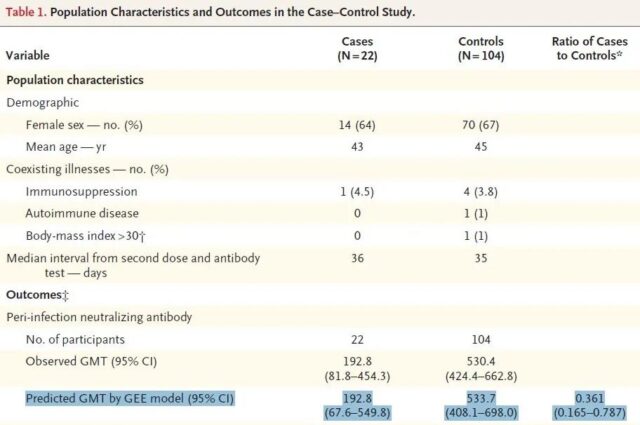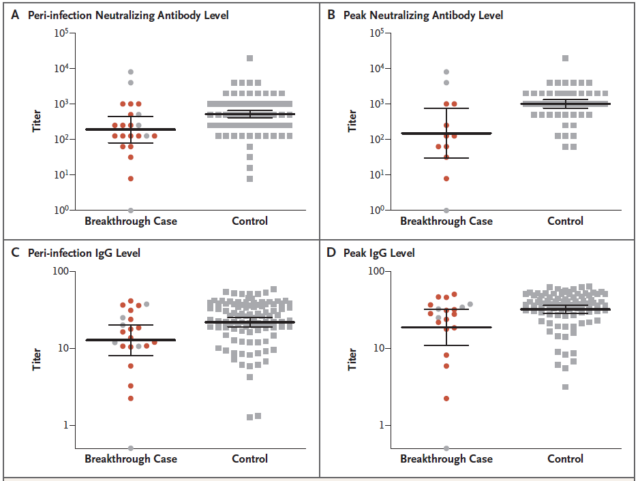NEJM: Who will still a breakthrough infection after fully COVID-19 vaccinated?
- WHO Releases Global Influenza Vaccine Market Study in 2024
- HIV Infections Linked to Unlicensed Spa’s Vampire Facial Treatments
- A Single US$2.15-Million Injection to Block 90% of Cancer Cell Formation
- WIV: Prevention of New Disease X and Investigation of the Origin of COVID-19
- Why Botulinum Toxin Reigns as One of the Deadliest Poisons?
- FDA Approves Pfizer’s One-Time Gene Therapy for Hemophilia B: $3.5 Million per Dose
NEJM: Who will have a breakthrough infection after fully COVID-19 vaccinated? The first real-world data gives predictive indicators
NEJM: Who will have a breakthrough infection after fully COVID-19 vaccinated? Breakthrough infection is defined as: a person who has been vaccinated more than 14 days after completing vaccination (Johnson & Johnson single-dose, Pfizer and Moderna double-dose vaccine) has a positive test result for the new coronavirus.
On July 28, 2021, the top international medical journal New England Journal of Medicine (NEJM) published a research paper titled: Covid-19 Breakthrough Infections in Vaccinated Health Care Workers.
This study of 11,453 medical workers in Israel who have been fully vaccinated with Pfizer-BioNTech’s COVID-19 vaccine shows that people who are fully vaccinated with the COVID-19 vaccine will be unlikely to have a relatively high level of virus-neutralizing antibodies after vaccination. Infected with the new coronavirus, which means that they will be unlikely to have a breakthrough infection.
This study provides an important basis for predicting whether a person will be infected with the new coronavirus based on the level of neutralizing antibodies. This can also help assess whether a booster shot is needed to prevent new virus mutant strains.
This is also the first real-world data linking high levels of neutralizing antibody titers after vaccination with a low risk of breakthrough infection.

The study counted the data of about 11,453 medical staff in the Sheba Medical Center in Israel who were fully vaccinated with the COVID-19 vaccine.

Although 39 of them were fully vaccinated, they were still infected with the new coronavirus. All 39 people are mild or asymptomatic. The most common symptoms were upper respiratory tract congestion (14 people, 36%); muscle pain (11 people, 28%); loss of smell or taste (11 people, 28%); fever or chills (8 people, 28%) twenty one%). Six weeks after the diagnosis, eight people reported symptoms of “long-term COVID-19,” including long-term loss of smell, persistent coughing, fatigue, weakness, difficulty breathing, or muscle pain.
Of the 39 breakthrough infections who were still infected after full vaccination, 22 were tested for antibodies on the day of diagnosis or a week before. The research team also compared and analyzed the antibody data of the other 104 uninfected people after vaccination that matched the 39 people’s age and other factors.
By comparing with 104 controls, the geometric mean titer (GMT) of neutralizing antibodies in 22 breakthrough infections during the peri-infection period was only 192.8, while that of the control group was 533.7.
Based on the peak neutralizing antibody titer of 12 patients with breakthrough infection one month after the second dose of vaccine, the peak neutralizing antibody titer of breakthrough infection is predicted to be 152.2, while that of the control group is 1027.5.


The peri-infection IgG titers and peak IgG titers of breakthrough infections were also much lower than those of the control group.

These results show that after complete vaccination with the COVID-19 mRNA vaccine, the probability of breakthrough infection is very low, only 0.34%, and all 39 breakthrough infections are mild or asymptomatic.
For these breakthrough infections, the study found that their neutralizing antibody levels were low, indicating that the peak antibody titer after vaccination is related to the protective efficacy of the vaccine. This is the first to prove that breakthrough infections have low neutralizing antibody levels Direct evidence.
Paper link:
https://www.nejm.org/doi/10.1056/NEJMoa2109072
(source:internet, reference only)
Disclaimer of medicaltrend.org
Important Note: The information provided is for informational purposes only and should not be considered as medical advice.



